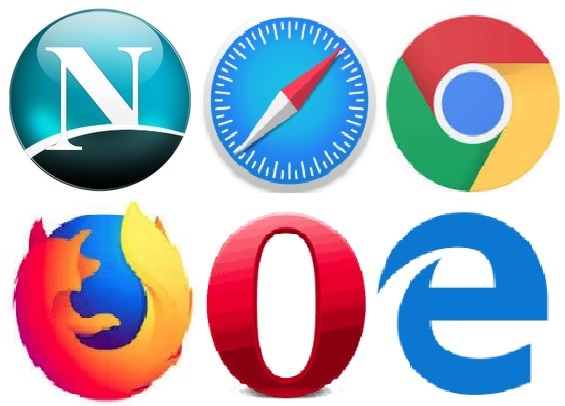Yes, the Browser Wars!!!
The "Browser Wars" started in the 90s with Netscape and Microsoft's Internet Explorer and continues today with browsers such as Google Chrome, Mozilla Firefox, and Apple's Safari. Increasingly, artificial intelligence is playing a role in enhancing the user experience of these browsers.
October 3, 2023
The Browser Wars began in the early 1990s and continue to this day. While the “war” is not a literal battle, it is an ongoing competition between web browsers for market share.
While the early days of the browser wars were dominated by the popular Netscape Navigator and Internet Explorer (IE) from Microsoft, there have been several major players in the market in recent years, including Google Chrome, Mozilla Firefox, Apple Safari, and Opera. In the beginning, Netscape dominated the market with its Navigator browser. It was the first widely used graphical web browser, and it quickly gained popularity due to its ease of use and versatile feature set. In 1995, Microsoft released IE to challenge Netscape’s dominance. IE featured a more sophisticated user interface, but it was not as popular as Netscape.

In 1998, the US Department of Justice sued Microsoft for anticompetitive practices, claiming that the company was using its monopoly power to prevent competitors from entering the market. Microsoft eventually settled the lawsuit and agreed to change certain business practices. As a result of the settlement, Microsoft had to make its Internet technologies available to other companies at no cost. This opened up the market to new competitors and signaled the beginning of the browser wars. In the late 1990s, Netscape continued to lose market share to IE and other browsers. In 2003, the company discontinued development of its Navigator browser and released the source code to the open-source community. This gave rise to the Mozilla Firefox browser in 2004, which quickly became popular due to its speed and security features.
Meanwhile, Google entered the browser market in 2008 with the launch of its Chrome browser. Chrome was faster and more secure than IE, and its popularity quickly grew. In 2010, Apple released its Safari browser for Windows, and in 2012, Opera released its browser for mobile devices. These new browsers added to the competition in the browser wars.
The browser wars continue to be an important part of the technology landscape. While IE and Netscape no longer dominate the market, the competition between browsers remains fierce. Each browser seeks to provide a better user experience than its competitors, and they all continue to innovate and improve.
The browser wars have had a major impact on the development of the web. The competition between browsers has resulted in faster and more secure browsing experiences, as well as improved features and user interfaces. It has also made the web more accessible to everyone, regardless of their operating system or device.
Today, the term “browser wars” typically refers to the ongoing competition for user preference among internet browsers like Google Chrome, Safari, Mozilla Firefox, Microsoft Edge, and others. While AI hasn’t fundamentally altered this competition as the primary factors still remain things like speed, privacy, user interface and extensions, AI and machine learning are increasingly integrated to enhance performance and user experience.
For example, Google uses AI throughout Chrome to improve several features such as predictive search, image recognition, language translation, and ad optimization. Meanwhile, Safari uses machine learning for features like Intelligent Tracking Prevention. Also, AI has been used to enhance browser security measures by identifying and blocking malicious activities.
A lesser-known branch of the browser wars now also includes AI-powered voice browsers like Amazon’s Alexa, Google’s Assistant, and Apple’s Siri. These compete for dominance in the growing voice search and command market, particularly in smart home devices.
We can say that while AI may not have drastically changed the nature of the browser wars, it has presented new opportunities for competition and innovation. Creators of web browsers are now in a race to see who can best leverage the technology to attract users, thereby heralding the age of AI-enhanced or even AI-driven browser wars.
#BrowserWars #WebBrowsers #GoogleChrome #MozillaFirefox #AppleSafari #OperaBrowser #InternetExplorer #NetscapeNavigator #AIinBrowsing #VoiceBrowsers #AmazonAlexa #GoogleAssistant #AppleSiri #AIenhancedBrowsing
